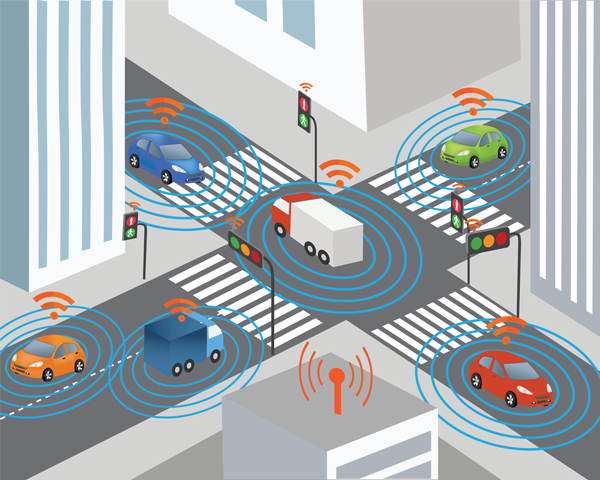Engineers to Look at Impact of New Transportation Modes on Communities

July 30, 2020 - The National Science Foundation has awarded a Smart and Connected Communities Planning Grant ($150,000) to a group of Samueli School civil and environmental engineering faculty for a project aimed at helping community planners maximize the societal benefits of new innovations in transportation.
Led by Michael Hyland, assistant professor, the researchers are partnering with the San Diego Association of Governments (the region's metropolitan planning organization) to develop mathematical models for evaluating potential impacts of these new innovations on transportation systems and community outcomes.
The faculty will examine shared mobility services, such as Uber and Lyft, driverless vehicles and digitally connected vehicles and infrastructure, and then determine their impact on access to jobs, food and health care for low-income and disadvantaged households, as well as traffic congestion, fuel consumption and harmful vehicle emissions.
“One of the main motivations of this study is to ensure, through proactive planning supported by modeling, that communities themselves benefit from the new transportation initiatives that private companies deploy, rather than allowing companies to implement technologies without actually ensuring the technology addresses community problems or improves livability,” said Michael Hyland, principal investigator on the project.
The team includes Professors Stephen Ritchie, Michael McNally, R. Jayakrishnan and Wenlong Jin. Hyland says they plan to work with additional communities and expect that the models and findings will be applicable across metropolitan regions in the U.S.
– Lori Brandt
